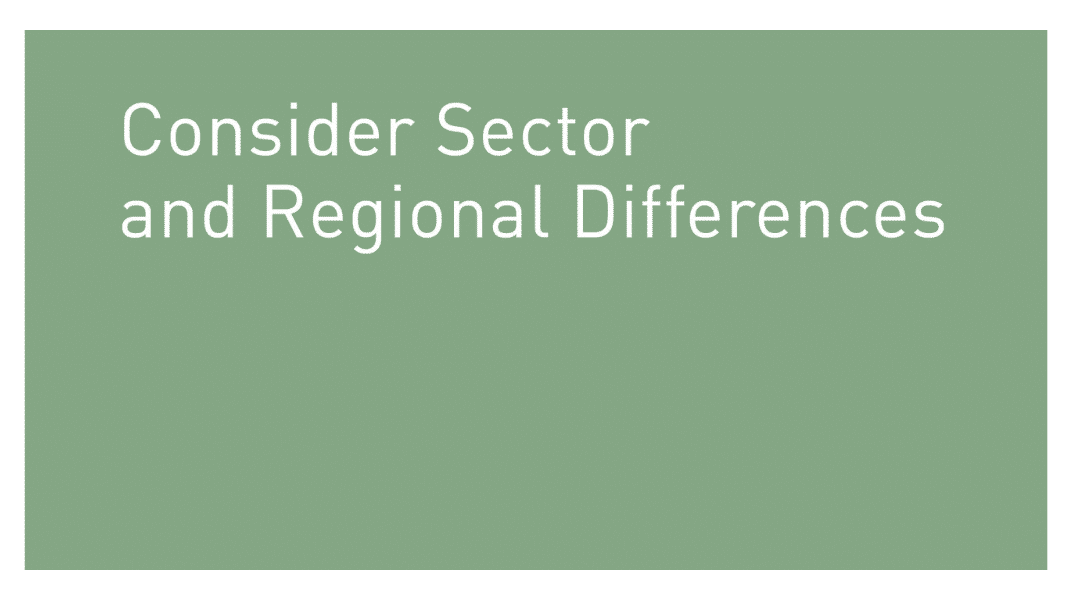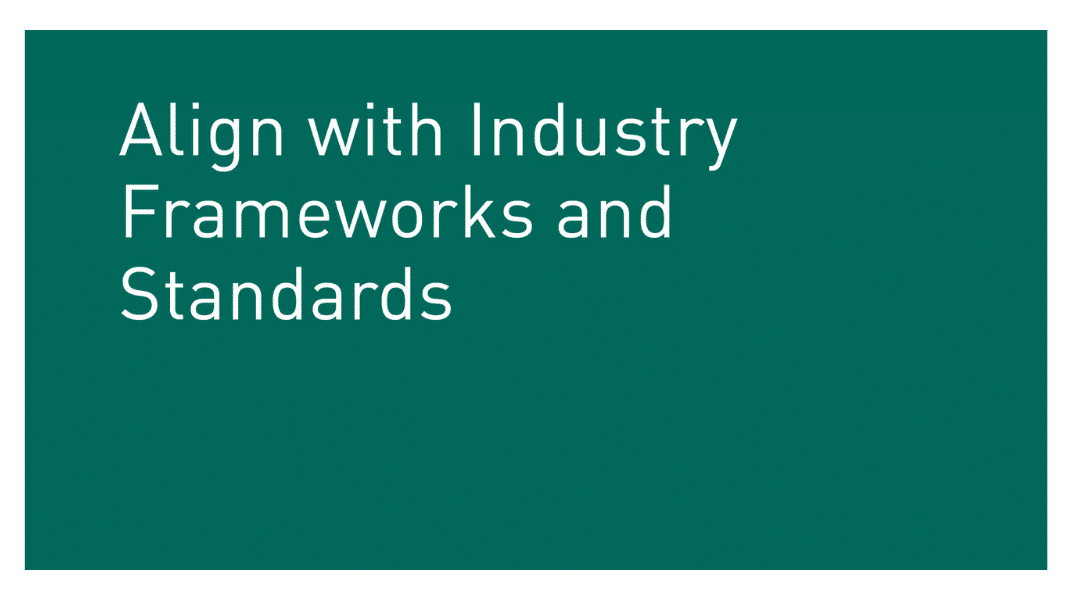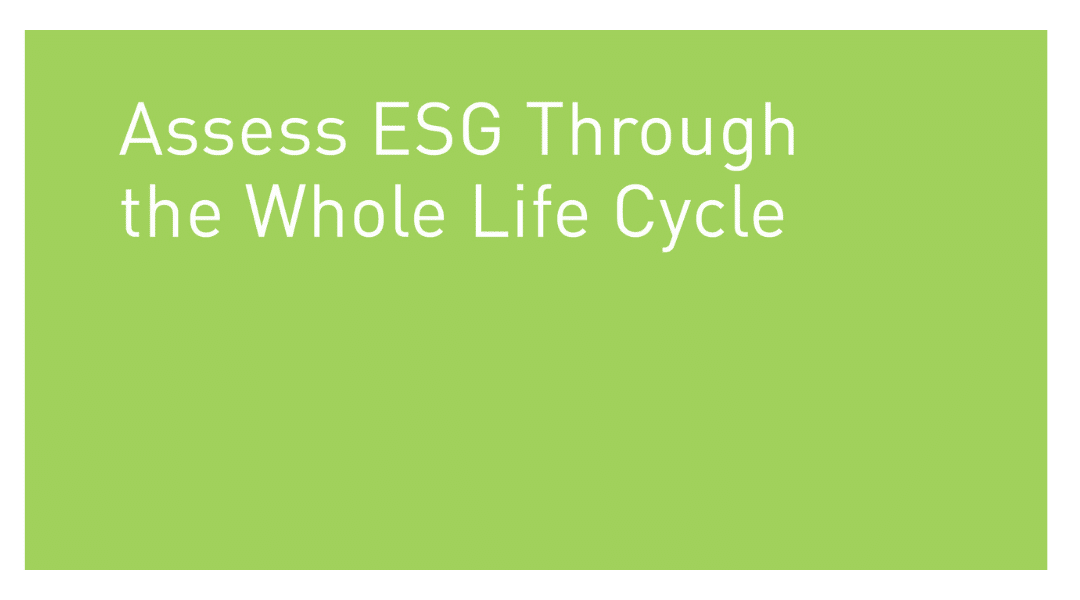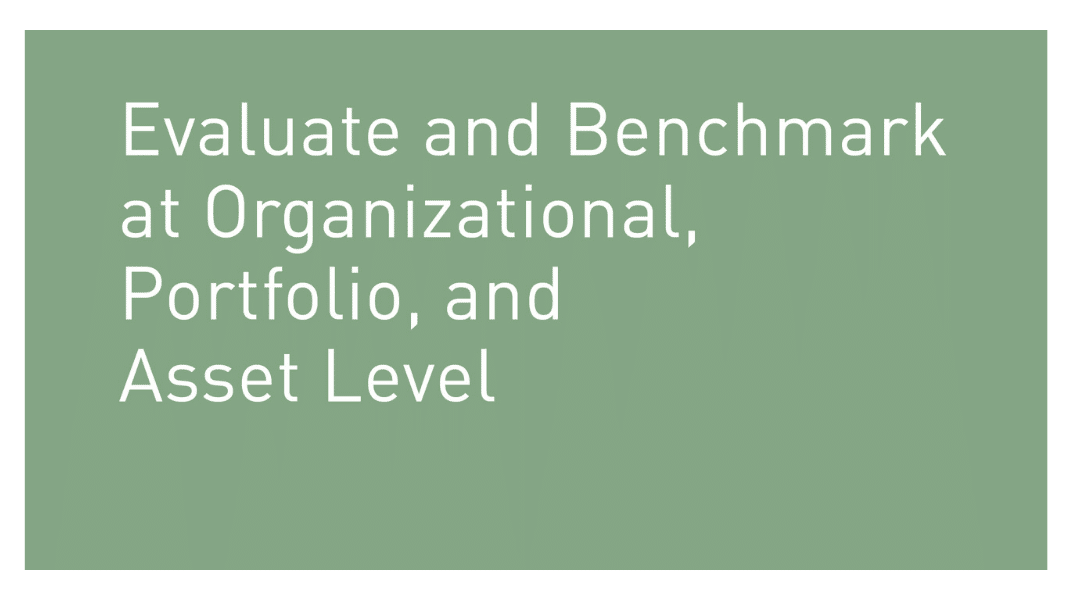"As ESG continues to grow in importance for real assets, it’s imperative that investors, managers, and other stakeholders come together to guide the development of the GRESB Standards into the future. The standards that we are creating will be owned and governed by the GRESB Foundation which represents the GRESB member and partner community."
The GRESB Standards
The GRESB Standards will provide a globally recognized and consistent means of assessing and benchmarking the ESG performance of assets and portfolios. They allow asset managers, listed companies, developers, asset operators, and investors to take a central role in creating a more sustainable world through financial markets.
The shared vision for the GRESB Standards is supported by the following principles.

The GRESB Standards will define and promote the most material ESG issues faced by our industry, both current and emerging. Indicators will be weighted to reflect their materiality.
This will ensure the GRESB Standards focus on helping the industry drive the transition to a more sustainable world.

The GRESB Standards will account for sector- and regional-specific materiality of ESG issues, considering that certain ESG topics are more material for some sectors or regions than others.
This reflects the diverse needs and interests of market participants, thus facilitating widespread industry adoption and coverage.

The GRESB Standards will align with, and seek to influence, relevant frameworks, such as regulatory requirements, and widely adopted reporting standards.
Alignment with industry frameworks and reporting standards provides market participants with clarity on what topics matter and draws on the most commonly used metrics to assess ESG performance. This encourages a robust and collaborative ESG reporting landscape that ensures the right issues are being addressed in an efficient manner, minimizing reporting burden.

The GRESB Standards will recognize both ESG implementation efforts undertaken by members and the achievement of sustainability outcomes (measured by performance).
Rewarding outcomes leads to real, meaningful long- term impacts that support the drive towards sustainable assets. Focusing on both efforts and outcomes helps to prevent greenwashing, providing capital markets with the information needed to contribute to global ESG priorities in an effective manner.

The GRESB Standards will help members assess ESG performance across the asset life cycle, including the stages of development, operation, and end of life.
Considering ESG across the real asset life cycle ensures that material impacts are not ignored because they are outside of traditional reporting boundaries. This will also incentivize members to consider ESG performance of assets and portfolios beyond their ownership horizon.

The GRESB Standards will support assessing and benchmarking at the organizational, portfolio, and asset level.
This will help managers and investors harness information at their desired level of granularity. Standardizing aggregation from the asset to organizational level improves data quality and consistency, while benchmarking at the appropriate level ensures data comparability.

The GRESB Standards will be backed by appropriate guidance, and support will be made available to all members to improve accessibility and promote widespread adoption.

The GRESB Standards will be regularly reviewed to promote industry best practices as they evolve to encourage knowledge sharing and to empower members to learn through the GRESB community.
Ongoing review and development of the Standards will ensure that they remain relevant and reflect both the most up to date information available and the vision of our community.

Connecting the Vision to the GRESB Assessments
The vision above sets out the principles for the development of the GRESB Standards. Through the recent Stakeholder Survey and Vision Sessions, industry-specific ESG issues and enablers were identified to help ensure that the vision is relevant and achievable for both real estate and infrastructure.
ESG issues presented here represent topics (the “what”) in the field of sustainability that need further development or focus in the GRESB Standards. Enablers refer to the way (the “how”) the GRESB Standards should evolve and be implemented.
The ESG issues and enablers helped to inform the Shared Vision for the GRESB Standards but are not finalized nor exhaustive. They serve as a starting point for the strategy phase of the roadmap development.

ESG Issues
- Progress against net zero targets
- Resilience to climate & physical risk
- Embodied carbon
- Diversity, Equity & Inclusion
- Health & well-being
- Human Rights (including Modern Slavery)
- Biodiversity
- Cybersecurity
Enablers
- Collaboration and alignment with other standard setters
- Continuous improvement of data quality
- Account for sector-and regional-specific materiality
- Moving towards reporting and recognizing ESG performance
- Increase access to tenant/customer data
The GRESB Vision and Creating a Strategic Roadmap
This vision is the culmination of the first phase of a stakeholder engagement process that was started in September 2021 to create a strategic roadmap for the GRESB Standards and Assessments.
The key principles and most important ESG issues and enablers listed above were identified following the membership-wide survey and consultations with the GRESB governance groups. You can read the meeting minutes from the consultation sessions here: Real Estate 1, Real Estate 2, Infrastructure. And you can download a PDF version of the GRESB Vision.
For more information and details about Phases 2 and 3 of the process, please see our Roadmap page.